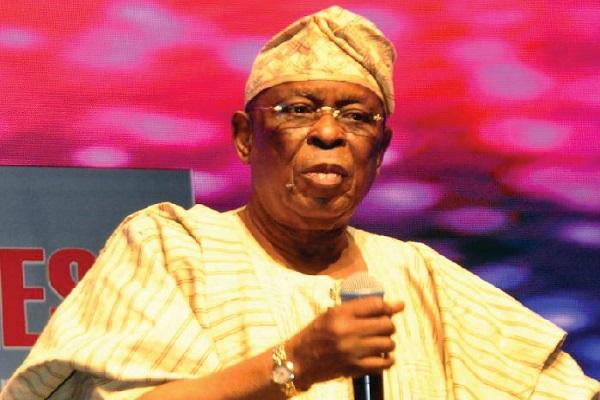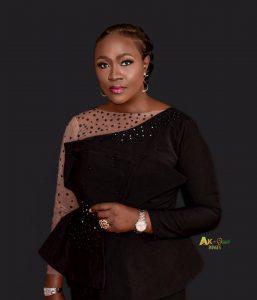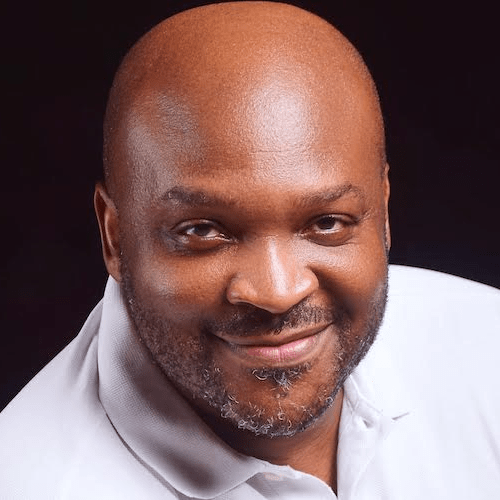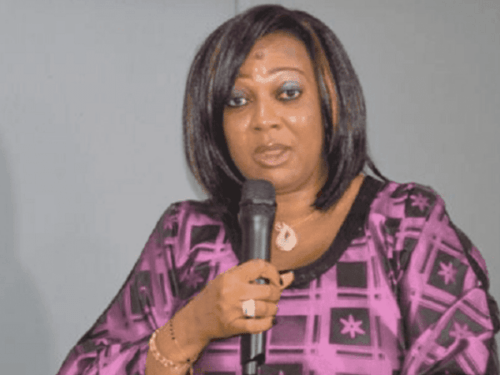By Sola Lawal
It was 11: 15 am. The date was May 25, 2021. Olusegun Osoba, an ¸gbá, Ogun State, High Chief, politician, and reporter extraordinaire, stepped into the precinct of Okemosan, the seat of the government of Ogun State. Eighteen years earlier in May 2003, he had stepped down as the governor of the gateway state. Not once did he come visiting in the 16 years of the gubernatorial assignments of the duo of Otunba Gbenga Daniel and Senator Ibikunle Amosun. But now the celebrated journalist was being honoured by the incumbent governor of the state, Prince Dapo Abiodun. A fitting attestation to his first love – the journalism profession – in the character of a prestigious press centre- appropriately named after him, was being unveiled. That the event was taking place in Abeokuta, the birthplace of journalism where Africa’s first newspaper- Ìwé Ìròhìn Yoruba- was published in 1959 by Reverend Henry Townsend of the Church Missionary Society, was telling enough.
Expectedly the event drew many contemporary greats in the profession. All attested to Osoba’s torch-bearing role in the media industry in Nigeria. He remains the only Nigerian reporter till date to have managed three national newspapers at the topmost position at different times: the Herald newspaper; then Daily Sketch and Daily Times.
My path crossed his in 1999 when the democratic rule was installed once again in the nation after a long jackboot rule of the military which started in 1983 when then General Muhammadu Buhari sacked the Shehu Shagari administration. Osoba had won the gubernatorial election in Ogun State for the second time, the first being the election that ushered him into the position on January 2, 1992. As he stepped in as head of the government, he pulled me along among others into the executive arm of the administration.
On each of the two occasions – 1992 and 1999- that he was sworn into office, Osoba took over from a military governor. In 1992, he succeeded Navy Captain Oladeinde Joseph (Rtd). In 1999 he came in after Navy Captain Kayode Olofinmoyin (Rtd). Now, this meant starting the democratic governance from scratch, particularly setting up the legislature and the judiciary, two main victims of military rule. This he did in 1992 and again repeated in 1999 following the destruction of these institutions by the military.
Many years of military rule in Nigeria witnessed unabated dislocation in socio-political structure, merciless distress in the economy and devastating attack on the ethos of the people. Osoba shouldered the onerous task of total renewal of lost character of Ogun State. Evidently, taking over after years of military rule came with peculiar challenges ranging from retooling the system of public service of authoritative command – obey mentality; revamping neglected socio-infrastructural collapse, and, most regrettable of all, redirecting the psyche of the people themselves to the new reality of representative governance.
Despite these challenges, he left an indelible imprint in infrastructure, education, road rehabilitation and reconstruction, provision of potable water, rural electrification, accountability, and transparency in government.
In appreciation of his efforts in infrastructural transformation of their areas, many rural communities renamed their ancestral homes after Osoba.

Speaking of prudence, I recall that no commissioner could at his/her level transact government business beyond N100,000 in value. We had the shock of Osoba’s treatment on the eve of our departure on May 28, 2003. Gaily dressed in flowing agbada with various sizes, colours and shape of caps to match, we sauntered to his office to receive our “parting gift”. Oga, as we called him, did thorough visual scrutiny of all of us as military bosses are wont to do at parades. Then he retorted: “Do you expect us to share government funds among us so that we lose sleep tomorrow? I’m not for it. Go get a ram each from the agriculture commissioner. Goodbye”. The rams, kept at the Ministry of Agriculture and Extension Services, supervised by Alhaji Sina Adegbenro, were gifted to the governor by appreciative rural communities across Ogun State.
That was how we went running after rams in our agbada since civil servants would no longer look our way. It is noteworthy that neither Osoba nor any single member of his cabinet has had cause to be questioned by any of the plethoras of anti-graft agencies in Nigeria more than 20 years after and after three successive regimes.
Exemplary, accommodating, modest and a gentleman, Osoba attracts to himself friends and loyalists as much and as easily as he does sworn enemies. Trusting? That is an area his close associates heap loads of blame on him. His level of trust in people and agreement is, many times, suicidal. Till today, 19 years after, all of us who served in his government blamed him for the defeat of the party in Ogun State. The story is that in the countdown to the 2003 election, desperate President Olusegun Obasanjo approached Afenifere leadership for support in winning Southwest in the impending presidential election. His outing in an earlier similar election in 1999 had given him a bloodied nose in the zone.
Although he won the presidency, losing the region was embarrassing enough. So a deal with Afenifere was crucial. He would disarm Southwest opposition Peoples Democratic Party in all other elections particularly gubernatorial, paving the way for Alliance for Democracy’s easy win. In return, PDP would get all the presidential votes. All governors of AD in the Southwest bought into the deal except Bola Tinubu of Lagos. In Ogun State, Osoba commenced a campaign for the election deploying all resources to sell Obasanjo who, in line with the agreement, also assured Osoba of not allowing PDP gubernatorial rallies anywhere in Ogun State.
At every stop, Osoba would seek vote for Segun òkè (Obasanjo) and Segun isale (Osoba). Soon word started filtering out that Obasanjo and his men were not keeping to the dictates of the agreement. PDP gubernatorial candidate, Otunba Gbenga Daniel, was all over the place. Obasanjo, against the grain of gentlemanly understanding, attended and even publicly endorsed Daniel at the Ake PDP rally.
We were apprehensive. Many of us sought an audience with our boss to argue the futility and self-injurious toga the understanding has assumed. We should back off. We should run on our steam. We insisted. Sina Adegbenro, agriculture commissioner and nephew of Obasanjo came up with a trillion reasons why Obasanjo should not be trusted.
Akinrogun Osoba kept assuring us Obasanjo would keep his own part of the deal.
The rest is history.
By mid-2001, the mid-term of the Osoba administration, Daniel, already eyeing the gubernatorial seat of Ogun State had effectively warmed himself into Osoba close system. He even got himself a vantage and obvious placement in Royal Advancement for Development (RADEV), an NGO run by first lady Bere Aderinsola Osoba. While savouring the advantage conferred by closeness to the Osobas, he deceptively floated Gateway Front Foundation, an NGO designed to mobilise local folks for his aspiration. At first, GFF looked harmless. Suddenly it started organising health programmes in communities, rivaling the state health ministry. We started raising concerns with Governor Osoba. Again trusting that Daniel was one of us and wouldn’t do anything to hurt the administration, Oga demobilised everyone till Daniel’s team was malignantly cancerous. He would soon decamp to the opposition PDP and became the arrowhead of Osoba traducers.
As steadfastness and loyalty go, Osoba has played his part admirably. At every critically challenging moment in the affairs of the Yoruba nation when men, real men, were needed to champion the cause of the people when self-interest had to be subsumed under group sympathy when personal gain must be jettisoned for the benefit of all, Osoba was there.
At the 1992 Jos Convention of the defunct Social Democratic Party, he led the pack of enforcers who ensured that late Moshood Kashimawo Olawale Abiola won the ticket to contest on the platform of the party. And so the biggest prize came to Yorubaland from Jos.
Thirty years after, Osoba would help achieve the same feat in Abuja when former governor of Lagos, Bola Ahmed Tinubu, won the presidential ticket of the ruling party, All Progressives Party, APC. The story was robustly told of how he, relying copiously on the primacy of Yoruba interest above all other considerations, persuaded every aspirant from the region to step down for Tinubu who eventually won the primaries.
Earlier in the month, he had deployed wisdom in ensuring aspirants to national offices of the party from the zone did not fight themselves dirty in the full glare of other regions by voluntary ceding of the turf for one another. Abdulraheem Adebayo Shittu, ex-minister of communication, publicly alluded to this when he credited Osoba with his decision to drop his aspiration for the prestigious position of national secretary of the party.
And when Abiola’s victory at the polls was truncated, he teamed up with others in the National Democratic Coalition, NADECO, to press for the restoration of Abiola’s mandate.
What else can be fitter than deploying the boundless possibilities of words to celebrate a man of superlative sartorial power, who lives by the dynamics of the written words and attained dizzying excellence in politics and journalism, two engagements that delight in the powerful use of words?
- Lawal is a journalist and public commentator.






















